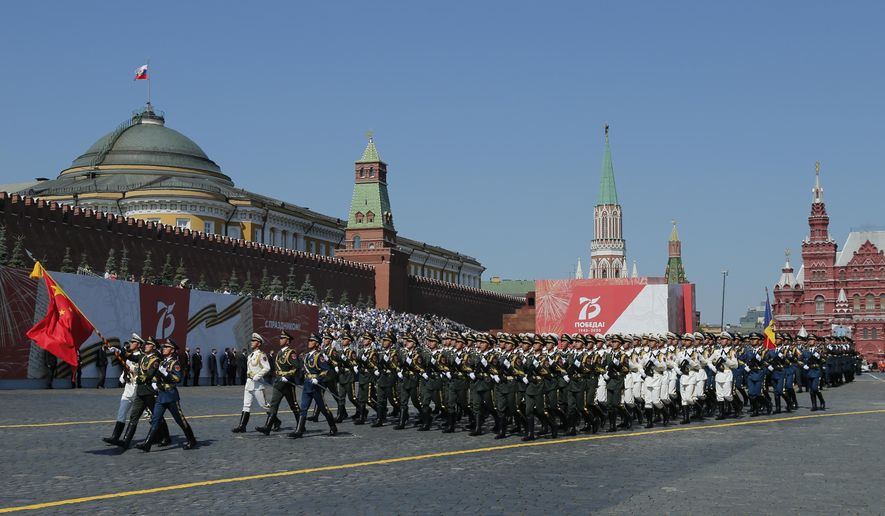China, Russia, Iran and a handful of other nations will hold massive joint military drills later this month in what Beijing dubs a “comprehensive strategic partnership of cooperation in a new era.”
The Kavkaz-2020 exercises, to be held in the Astrakhan region of Russia beginning on Sept. 21, also will include troops from Armenia, Belarus, Iran, Myanmar and Pakistan.
In a statement Thursday, the Chinese Ministry of National Defense said the exercise is not specifically targeted “at any third party” — a nod to recent military tensions with the U.S.
But Beijing did make clear that the exercises represent the deepening of its ties with Moscow.
“At this critical moment when countries around the world are joining hands to fight the COVID-19 pandemic, China’s participation in the exercise aims to further develop the China-Russia comprehensive strategic partnership of cooperation in a new era, deepen the pragmatic cooperation in military training between the two sides, and boost the capacities of military forces from different countries to jointly deal with security threats and safeguard regional peace and stability,” the ministry said in its statement.
The Pentagon considers Russia and China to be America’s top two global rivals in a new 21st-century era of great power competition.
During the exercises, Chinese military forces will “participate in phased drills including mobile defense and annihilation, joint firepower striking, all-dimensional assaulting and surrounding, and battlefield situation stabilizing and controlling,” Chinese officials said.
Russian military leaders, meanwhile, said another nine countries will send representatives to observe the Kavkaz drills.
Late last month, the U.S. and its allies held their own major joint military drills. The annual Rim of the Pacific event, or RIMPAC, included military forces from the U.S., Australia, Brunei, Canada, France, Japan, New Zealand, the Philippines, South Korea and Singapore.
China’s military has taken part in RIMPAC in past years but was formally disinvited by the Pentagon in 2018 over U.S. objections to Beijing’s militarization of the South China Sea.
• Ben Wolfgang can be reached at bwolfgang@washingtontimes.com.




Please read our comment policy before commenting.